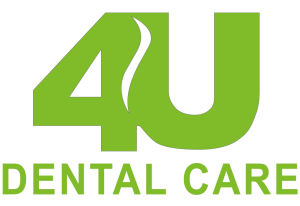Introduction
Visiting the dentist is an essential part of maintaining good oral health, but for many individuals, it can be a source of significant anxiety. Dental anxiety is a common issue that affects people of all ages, preventing them from seeking necessary dental care and leading to more significant oral health problems in the long run. However, by understanding the root causes of dental anxiety and implementing effective strategies, you can overcome your fear and ensure regular dental visits for a healthy smile. In this article, we will explore practical tips for managing dental anxiety and making your dental visits with 4U Dental Care in Aurora a more positive experience!
Understanding Dental Anxiety
Dental anxiety is characterized by feelings of fear, unease, or apprehension related to dental treatment. It can stem from various factors, such as fear of pain, embarrassment, or loss of control. Negative past experiences or stories heard from others can also contribute to dental anxiety. It is important to recognize that dental anxiety is common and that dentists are well aware of the issue. They are trained to help patients manage their anxiety and create a comfortable environment during dental procedures.
Choose the Right Dentist
Finding a dentist who understands and specializes in treating patients with dental anxiety can make a world of difference. Look for a dental practice that emphasizes patient comfort and offers sedation options if necessary. Reading online reviews and seeking recommendations from friends or family members can help you find a dentist who is known for their gentle approach and ability to handle anxious patients.
Open Communication with Your Dentist
Establishing open communication with your dentist is vital in managing dental anxiety. Before your appointment, inform your dentist about your fears and concerns. This will help them tailor the treatment to your specific needs and allow them to explain procedures in detail, alleviating any uncertainties you may have. Understanding what to expect can greatly reduce anxiety and help you feel more in control during your dental visit.
Gradual Exposure and Desensitization
If your dental anxiety is severe, you may benefit from a gradual exposure approach. Start by scheduling a consultation with your dentist where you discuss your fears and anxieties without undergoing any treatment. This allows you to become familiar with the dental environment and establish a sense of trust with your dentist. Once you feel comfortable, you can gradually progress to simple procedures, such as cleanings, before moving on to more complex treatments. By gradually exposing yourself to dental experiences, you can desensitize your anxiety and build confidence in the process.
Relaxation Techniques
Relaxation techniques can be incredibly helpful in managing dental anxiety. Deep breathing exercises, meditation, and visualization techniques can calm your mind and body, reducing stress and tension before and during your dental appointment. Practice these techniques regularly, even outside of dental visits, to develop a sense of relaxation that you can employ when anxiety arises.
Distraction Techniques
Distracting your mind during dental procedures can shift your focus away from anxiety-inducing thoughts. Bring headphones and listen to calming music or audiobooks. Some dental offices even provide TVs or virtual reality headsets to help patients relax during treatment. Engaging in conversation with your dentist or dental hygienist can also help distract your mind and make the experience more pleasant.
Consider Sedation Options
For individuals with severe dental anxiety, sedation dentistry can be a viable solution. Options such as nitrous oxide (laughing gas), oral sedation, or intravenous sedation can help you relax and reduce anxiety during your dental procedures. Discuss these options with your dentist to determine if they are suitable for your specific needs.
Seek Support
It can be helpful to share your dental anxiety with friends or family members who have had positive dental experiences. They can provide support and reassurance, helping you realize that dental visits can be comfortable and manageable. Additionally, some dental practices offer support groups or counseling services specifically for patients with dental anxiety. These resources can provide a safe space to discuss your fears and gain insights from others who have overcome similar challenges.
Conclusion
Dental anxiety should not prevent you from maintaining optimal oral health. By implementing the strategies outlined above, you can overcome your fear of the dentist and ensure regular dental visits. Remember, dentists are committed to making your experience as comfortable as possible, and with open communication, gradual exposure, relaxation techniques, and the support of your dental care team, you can conquer dental anxiety and achieve a healthy, beautiful smile. Don’t let fear hold you back—take charge of your dental health, by visiting 4U Dental Care in Aurora today!
